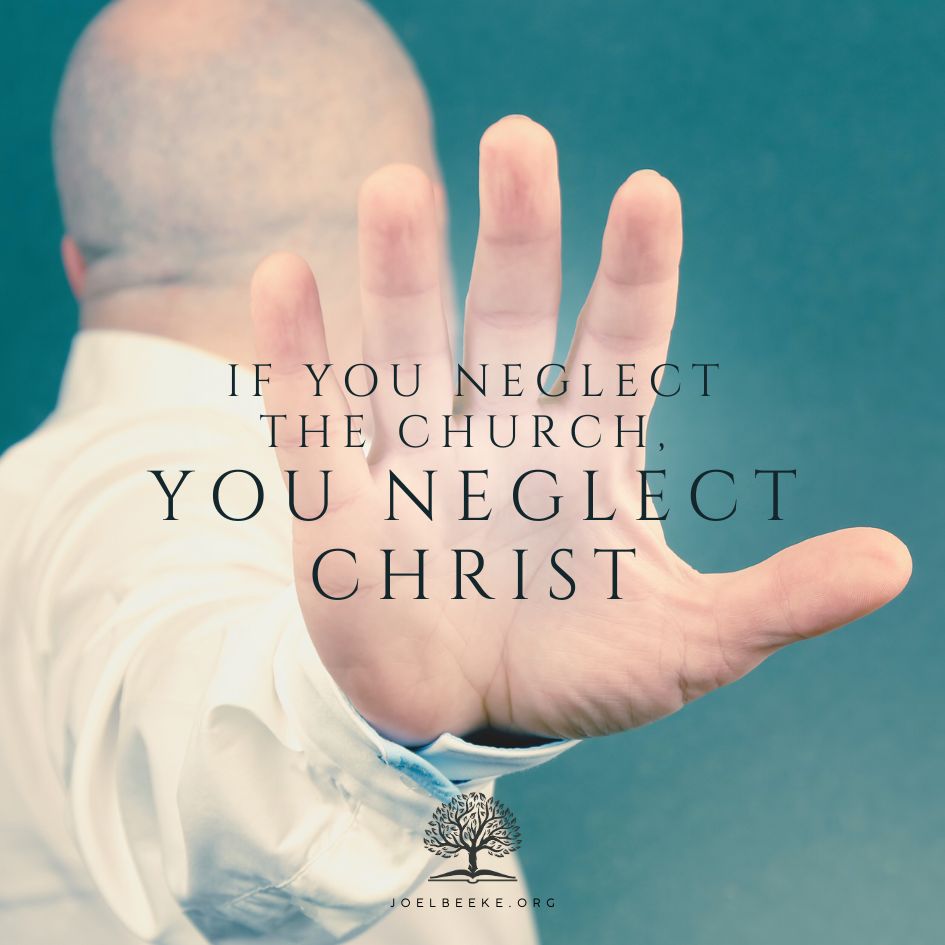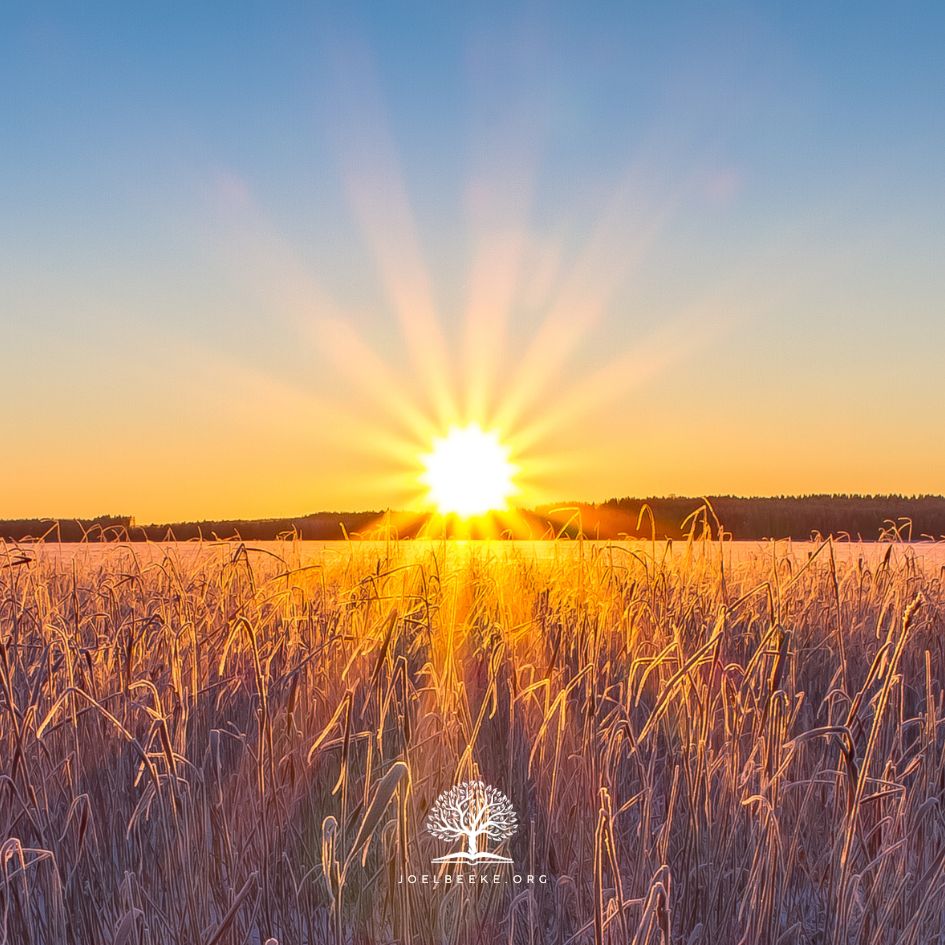
If we keep the Sabbath with delight, then the Lord promises us that He “will cause thee to ride upon the high places of the earth, and feed thee with the heritage of Jacob thy father: for the mouth of the LORD hath spoken it.” To “ride upon the high places of the earth” refers to the way God provided for all of Israel’s needs in the wilderness on their way to the Promised Land (Deut. 32:13).1“He found him in a desert land, and in the waste howling wilderness; he led him about, he instructed him, he kept him as the apple of his eye. As an eagle stirreth up her nest, fluttereth over her young, spreadeth abroad her wings, taketh them, beareth them on her wings: so the Lord alone did lead him, and there was no strange god with him. He made him ride on the high places of the earth, that he might eat the increase of the fields; and he made him to suck honey out of the rock, and oil out of the flinty rock” (Deut. 32:10–13, emphasis added). The phrase is the same Hebrew words as those used in Isa. 58:14. The “heritage” or inheritance of Jacob is more than the land of Canaan; according to Isaiah 54, it is the spiritual and eternal riches promised in the new covenant.2Isa. 54 ends with the statement, “This is the heritage of the servants of the LORD, and their righteousness is of me, saith the LORD” (Isa. 54:17b). This is not then just a promise of provision for our daily needs, but a promise of inheritance in the eternal kingdom of God.
The Sabbath is a sign of the ultimate glory of the church’s future.3The following is adapted from Beeke, Puritan Reformed Spirituality, 114–15. The prophecy of Isaiah closes with the announcement of the promise of the new heavens and the new earth for God’s people: “For, behold, I create new heavens and a new earth: and the former shall not be remembered, nor come into mind” (Isa. 65:17). In this new creation, the labor of God’s people shall be wholly redeemed from the curse that has mingled pain and death with all our work: “They shall not labour in vain, nor bring forth trouble; for they are the seed of the blessed of the Lord, and their offspring with them” (v. 23).
This new (or renewed) order of creation will abide as the consummation of the promise of redemption. Not only is the labor of God’s people to be wholly redeemed from the curse; the Sabbath also will at last come into its own as the universal day for the worship of Jehovah. Such is the promise of God: “For as the new heavens and the new earth, which I will make, shall remain before me, saith the LORD, so shall your seed and your name remain. And it shall come to pass, that from one new moon to another, and from one sabbath to another, shall all flesh come to worship before me, saith the LORD” (Isa. 66:22–23).
Therefore, to keep the Sabbath profitably today is to cultivate hope in the coming of our Lord, or “to begin in this life the eternal sabbath,” as the Heidelberg Catechism says.4Heidelberg Catechism, LD 38, Q. 103, in The Reformation Heritage KJV Study Bible, 2002. The Lord’s Day is Resurrection Day, recalling Christ’s resurrection, and looking forward to the resurrection of all who are in Christ.5Campbell, On the First Day of the Week, 216. “Remember the sabbath” means there is a rest coming for the people of God. A perfect world is about to dawn. There will be a new order at the end of life’s journey, and all those who know God by faith in Jesus will enter into eternal glory, the eternal Sabbath with their eternal Lord. And oh, what an eternal Sabbath this will be, friends—to be eternally with God! To be eternally resting in the very finished work in which God Himself rested and continues to rest, even the work of His only-begotten Son! Happy eternal Sabbath, when with perfected soul and resurrected body you shall glory in the King of kings forever. “Remember the sabbath day” means, “Remember eternity.”
Robert Murray M‘Cheyne said, “This is the reason why we love the Lord’s day. This is the reason why we ‘call the Sabbath a delight.’” When a believer steps away from his office cubicle or his station in the factory, sets aside his work clothes and worldly cares, and comes to the house of God, it is like the dawn of the resurrection. When he sits under the preaching of God’s Word and hears the voice of the Shepherd leading and feeding his soul, it reminds him of the day when “the Lamb which is in the midst of the throne shall feed them, and shall lead them unto living fountains of waters: and God shall wipe away all tears from their eyes” (Rev. 7:17). When he joins in singing psalms of praise, it reminds him that one day he will join the voices of myriads of angels and redeemed men to worship God and the Lamb. Thus M‘Cheyne wrote, “A well-spent Sabbath we feel to be a day of heaven upon earth.”6Robert Murray M‘Cheyne, “I Love the Lord’s Day,” in Memoirs and Remains of Robert Murray M‘Cheyne, ed. Andrew Bonar (1892; repr., Edinburgh: Banner of Truth, 1995), 596–97. The sentences between the quotes are slightly paraphrased from M‘Cheyne’s own words.
All our earthly Sabbaths should be kept with a desire to join in the worship of the angels and saints in glory. Every Lord’s Day, look forward to the Day of the Lord. Make heaven a special focus of your meditations. The Sabbath gives unparalleled opportunities to “seek those things which are above, where Christ sitteth on the right hand of God” (Col. 3:1). We need the Sabbath so that the weeds of worldly cares and concerns do not choke the Word and smother the hope that is ours in Christ. Richard Sibbes said, “For whose good hath God appointed the Lord’s day? Is it not for our own? Should we not grow base and earthly-minded, if one day in seven we should not be heavenly-minded, and think upon our everlasting condition in another world?”7The Works of Richard Sibbes, 6:557, cited in Campbell, On the First Day of the Week, 219.
Conclusion
We have followed the Lord’s teaching in Isaiah 58:13–14 to discover four steps towards profitable Sabbath-keeping. First, we must be convinced in our minds that the doctrine of the Sabbath is God’s revealed truth. Second, we must exercise personal self-discipline and say no to other things so we can say yes to seeking God on the Sabbath. Third, in order that our Sabbath-keeping not become a hollow shell or proud legalism, God calls us to make the Sabbath a day of spiritual delight. Fourth, the best Sabbath on earth is only a foretaste of the feast of heaven, and that must be our ultimate hope and desire.
When we bring these four principles together, we see more clearly what the Lord is communicating through Isaiah’s words: He is calling us to embrace the biblical doctrine of the Sabbath with holy discipline in order to delight in Christ and foster desire for the eternal Sabbath. Remember the Sabbath day, to keep it holy. It is God’s day with His people, and your day with God. If you had the opportunity to spend a whole day with someone very dear to you, wouldn’t you be glad for it? Imagine a day to be with a kind father or mother, a loving spouse, or a dear friend. Would you resent putting aside your work to be with this loved one? Wouldn’t you avoid anything that would distract or interrupt your time together? Let that be your attitude towards the Sabbath. Make it a day of love for God and love for Christ as Lord of the Sabbath day.
An excerpt from
Delighting in God: A Guide to Sabbath-keeping
By Joel Beeke and Paul Smalley
PURITAN REFORMED JOURNAL
Volume 11, Number 1 • January 2019







